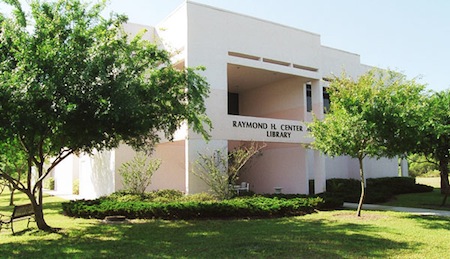 Education
Education
 Evolution
Evolution
 Intelligent Design
Intelligent Design
Online Course, “Darwinism and Intelligent Design,” Being Offered by Dr. Tom Woodward at Trinity College

Tom Woodward, author of Doubts about Darwin and Darwin Strikes Back, recently let us know that he is offering an online course through Trinity College, “Darwinism and Intelligent Design.” Information about the course can be found here or here. The course is open to anyone, anywhere. Dr. Woodward offers the following course description:
Darwinism & Intelligent Design Online Course
For the first time, “Darwinism & Intelligent Design” is being offered as an online course through Trinity College of Florida, August 9 through September 21. This course centers on the historical controversy between Darwinism and intelligent design while examining three dimensions (science, philosophy and history) of the contemporary debate between the two theories.
Taught by Trinity College research professor Dr. Tom Woodward, the course’s unifying goal is to understand:
- Why scientific skepticism of Darwinian evolution intensified during the past half-century,
- How design theorists have articulated the “inference to design,” and
- How Darwinists have responded to these challenges.
The course will also explore answers to the following questions:
- What difficulties arise when scientists assume microevolution can generate macroevolution?
- How can we determine whether entities in nature were produced by an intelligence?
- How has scientific rhetoric been transformed by the furor over ID?
- What are the key trends that will shape the future of this debate?
- What role do worldview commitments of scientists play?
- Does the “fine tuning” of the universe lend weight to ID Theory?
This course can be taken online anywhere in the world. If you would like more information, call the Trinity Quest office toll-free at 866-526-8575, or email trinityquest@trinitycollege.edu.
Throughout our study, we will track the scientific and philosophical controversy of “Darwin v. Design” in terms of the changing dynamics of scientific persuasion. This “persuasion focus” will entail a brief overview of the fast-growing academic field known as the “rhetoric of science.”
Course Coverage:
After a brief review of the development of Darwinism from the 1830s until the solidifying of the “neo-Darwinian Synthesis” in the 1940s, we begin our current study at the time of the 1959 Centennial Celebration of the publication of Darwin’s Origin of Species. At that time, a scientific consensus had emerged: both the origin of life and the subsequent diversification of life were produced through strictly mindless forces in nature, such as mutation and natural selection.
After the appearance of Evolution: A Theory in Crisis by geneticist Michael Denton in 1985, this consensus began to come under increasing scientific criticism. We will survey all major facets of this origins debate, including the problem of “fossil stasis” coupled with the mystery of the Cambrian explosion, the role of philosophical naturalism in defining science, the challenge of irreducibly complex cellular machines, and the origin of informational macromolecules: DNA, RNA and proteins.
Students will review the historical narrative of the rise of design theory, with a focus on Phillip Johnson, Michael Behe, Jonathan Wells, William Dembski and Stephen Meyer. Rare historical video footage, taken at the time of the birth of the Design Movement, will be viewed. We will review the vigorous responses to those scholars by many Darwinists, including Stephen Jay Gould, Michael Ruse, Kenneth Miller and others.
What difficulties arise when scientists assume that microevolution can generate macroevolution? What role did Thomas Kuhn’s writing on “paradigm shifts” and scientific revolutions play in the emergence of design theory? These and many other questions will be analyzed.
Textbooks and DVDs:
Doubts about Darwin, by Thomas Woodward (Baker, 2003; paperback 2005); Darwin Strikes Back, by Thomas Woodward (Baker, 2006); and The Edge of Evolution, by Michael Behe (Free Press, 2007).
In addition to these three required books, several articles and essays will be read, and a number of DVDs and YouTube video clips will be viewed. Three superlative DVDs on Intelligent Design produced by Illustra Media (Unlocking the Mystery of Life, The Privileged Planet and Darwin’s Dilemma) will be viewed as part of the course requirements.
Lastly, for a personal research project, each student will choose one book to report on, from a list of 15 selected books that are highly relevant to the Darwinism/ID controversy. A copy of this list is available, prior to the application/registration process, by emailing a request to Dr. Woodward.
